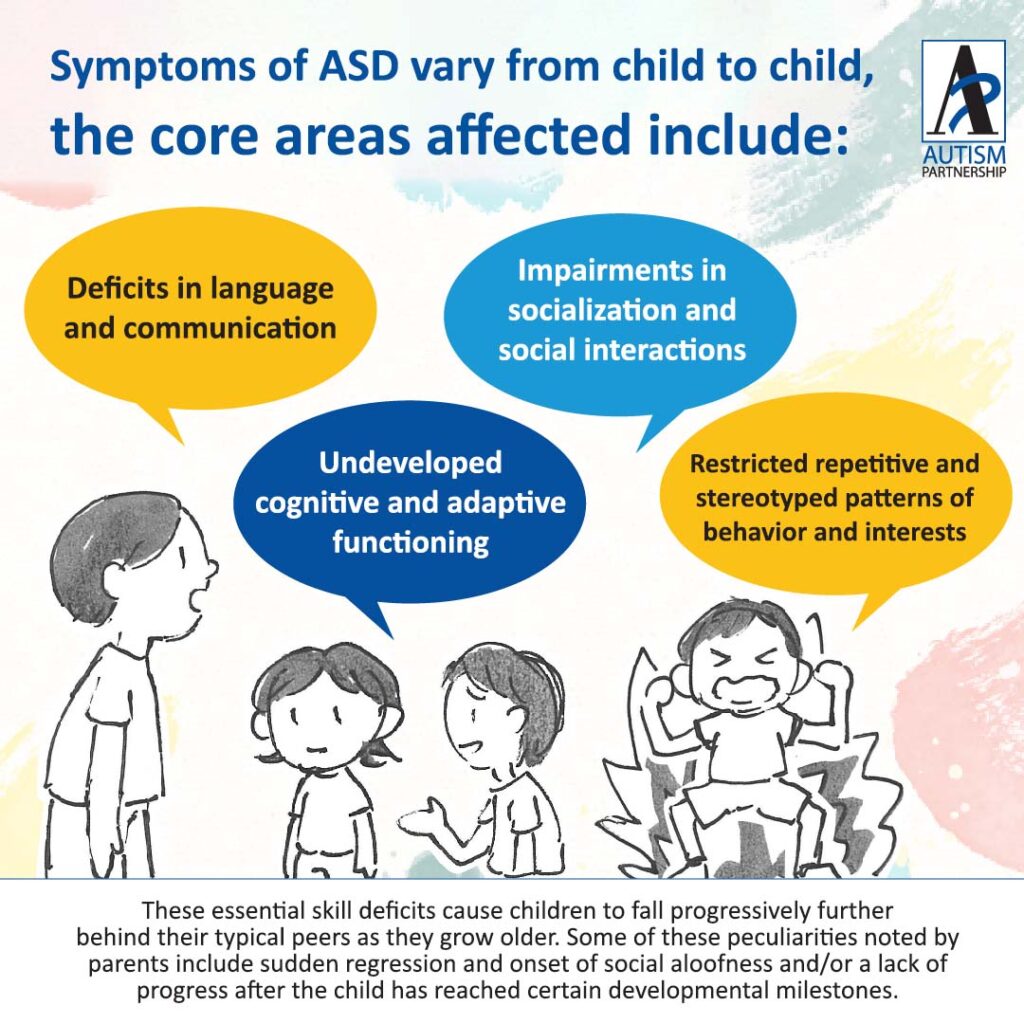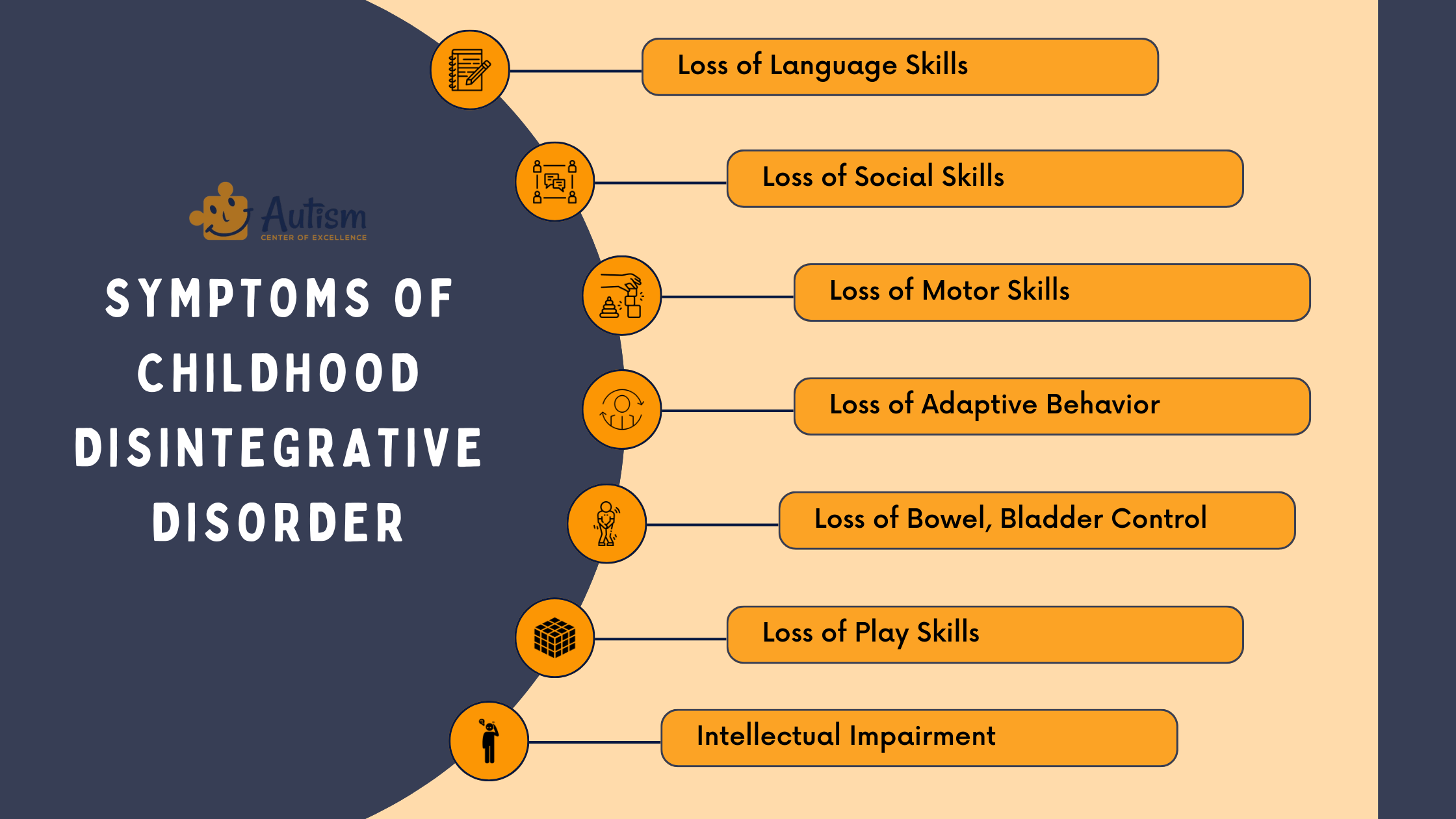How to build real connections with help from an Autism Therapist's insights
How to build real connections with help from an Autism Therapist's insights
Blog Article
Secret Symptoms And Signs to Identify in People With Behavioral Autism
When you experience somebody with behavior autism, identifying essential indications and signs and symptoms is important. In addition, sensory level of sensitivities can lead to overwhelming experiences.
Challenges in Social Communications
When you communicate with a person on the autism spectrum, you may notice they have a hard time with social signs and interaction. These obstacles can make social communications feel frustrating for them. You might see them avoiding eye get in touch with or standing as well close or too far during discussions, which can create misunderstandings. They may not pick up on body movement or faces, making it harder for them to evaluate exactly how others are feeling.
When they do engage, they may speak regarding their interests in wonderful detail without seeing if you're interested. Comprehending these obstacles can help you come close to interactions with compassion and persistence, cultivating an extra comfortable setting for both of you.
Problem With Verbal and Non-Verbal Communication

Non-verbal interaction can be much more challenging. You might see a lack of eye get in touch with or minimal use motions, which can make interactions really feel awkward. Face expressions may not always align with the conversation, causing complication concerning their sensations. Acknowledging these signs is necessary, as it assists you better assistance and involve with people on the autism spectrum. By comprehending their interaction challenges, you can foster extra purposeful connections and provide an extra encouraging atmosphere.
Repeated Actions and Routines
Interaction difficulties usually go along with other indications of autism, such as repetitive actions and a solid choice for routines. You might observe that individuals with autism frequently involve in certain, repeated activities, like hand-flapping, shaking, or repeating expressions. These actions can give convenience and a sense of control in a frequently frustrating world.
Routines are similarly essential; several individuals prosper when they comply with a structured schedule. You may locate that modifications to these regimens can bring about substantial distress. For instance, if they have an everyday routine of eating breakfast at a particular time or following a particular course to school, any disturbance can cause stress and anxiety.
Recognizing these patterns assists you recognize their habits and offer assistance. By suiting their need for routine and allowing recurring activities, you can produce a more comfy atmosphere that relieves their obstacles.
Sensory Level Of Sensitivities

Typical Sensory Triggers
Sensory level of sensitivities can significantly affect daily life for people with autism, as specific stimulations usually set off overwhelming responses. Usual sensory triggers consist of loud sounds, bright lights, and strong scents. You might discover that unexpected audios, like alarms or sirens, create stress and anxiety or distress. Similarly, fluorescent lighting in stores can feel uneasy and severe. Appearances can likewise play a significant function; harsh fabrics or certain food structures might be unbearable for you. Furthermore, crowded locations can bewilder your detects, making it hard to concentrate or kick back. Comprehending these triggers can help you handle your atmosphere better. By being conscious of what impacts you, you can take steps to decrease pain and boost your day-to-day experiences.
Behavioral Responses Described
Understanding your behavior responses to sensory sensitivities is essential, as they often reveal just how you connect with the world. You may additionally find yourself seeking certain sensory experiences, like deep stress or peaceful settings, to assist ground yourself. Identifying these patterns helps you understand your needs far better and can direct just how you connect them to others.
Coping Techniques Overview
Recognizing your sensory level of sensitivities is simply the initial action; currently it's time to explore coping techniques that can help you take care of those experiences properly. Beginning by creating a sensory toolkit customized to your demands. Developing an organized routine can additionally offer predictability, additional reading reducing anxiousness around sensory overload.
Limited Rate Of Interests and Emphasis
While lots of individuals develop a variety of passions, those with autism frequently demonstrate restricted interests and an extreme emphasis on details subjects. You might linked here notice that a person with autism can invest hours diving right into their preferred topic, whether it's a particular kind of train, a details flick, or a clinical principle. This intense focus isn't just a pastime; it can end up being a central component of their identity and social communications.
You may find that conversations focus on these passions, and they might struggle to engage in broader subjects. For them, these focused passions offer convenience and a feeling of mastery. While it's crucial to motivate exploration of brand-new topics, respecting their enthusiasms is equally necessary. By understanding and recognizing these restricted interests, you can foster a helpful environment where they feel valued and comprehended, allowing for even more significant links and interactions.
Emotional Regulation Troubles
Individuals with autism usually encounter obstacles in emotional regulation, which can be influenced by their intense emphasis on certain interests. You might see that when an individual is deeply taken part in a favored activity, they can experience strong emotions, whether enjoyment or disappointment. This intensity in some cases makes it difficult for them to move equipments or handle their sensations when points do not go as prepared.

Irregularity in Developmental Landmarks
When it pertains to developmental turning points, you'll observe that individuals with autism typically show a large range of variability. Some may hit milestones promptly, while others may delay behind or development at a various rate. You may see a kid excel in language abilities but battle with social communications. This inconsistency can be complex, as typical standards don't constantly apply.
It's important to acknowledge that each individual's journey is distinct. Some may establish complex skills early, just to encounter obstacles later on. Others could take longer to achieve fundamental milestones however then flourish in specific areas. Observing these patterns can aid you comprehend their toughness and needs much better.
Often Asked Concerns
How Is Autism Diagnosed in Kid and Grownups?
To identify autism in children and adults, professionals examine habits, communication abilities, and social interactions. They frequently make use of standard examinations, interviews, and monitorings to establish resource if an individual fulfills the requirements for autism range disorder.
Exist Different Sorts Of Autism Spectrum Disorders?
Yes, there are different kinds of autism range disorders, consisting of Asperger's disorder and prevalent developing disorder-not or else defined. Each kind differs in intensity and features, so recognizing these distinctions can aid you much better assistance people with autism.
What Treatments Are Effective for Individuals With Autism?
When taking into consideration effective therapies for individuals with autism, you'll locate options like Applied Actions Evaluation, speech treatment, and work therapy. Each strategy can assist improve communication, social abilities, and day-to-day functioning tailored to specific needs.
Can Individuals With Autism Lead Independent Lives?
Yes, individuals with autism can lead independent lives. With the ideal assistance, skills training, and sources, you can aid them create self-sufficiency, manage day-to-day tasks, and prosper in various settings, fostering their self-reliance.
Exactly How Can Families Support Enjoyed Ones With Autism?
You can support your loved ones with autism by creating an organized atmosphere, urging their passions, exercising patience, fostering communication, and advertising social abilities. Celebrate their achievements, despite exactly how small, and build an encouraging neighborhood.
Although lots of people on the autism range can make use of and understand language, they often encounter substantial difficulties with both verbal and non-verbal communication. Identifying these signs is essential, as it aids you better assistance and engage with people on the autism spectrum. You may observe that individuals with autism often engage in certain, repetitive actions, like hand-flapping, shaking, or duplicating phrases.Sensory sensitivities can considerably influence daily life for individuals with autism, as specific stimulations commonly set off overwhelming responses.When it comes to developing milestones, you'll discover that individuals with autism often reveal a broad variety of variability.
Report this page